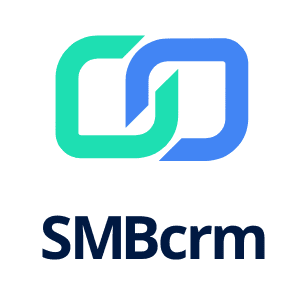
In today’s fast-paced business environment, online appointment calendar software have emerged as pivotal tools, streamlining the booking process and replacing traditional methods. These calendars bring efficiency to operations by eliminating manual errors, double-bookings, and enhancing the overall user experience for clients. The evolution from paper-based or phone booking systems to digital calendars represents a fundamental shift toward accessibility and convenience. Businesses now recognize the crucial role of efficient operations in staying competitive and meeting customer expectations. The ability to seamlessly manage appointments online not only saves time but also optimizes resource allocation, reducing downtime and maximizing productivity. As we delve into the transformative power of online appointment calendars, it becomes clear that they are more than just scheduling tools—they are essential components in shaping the success and agility of businesses in the contemporary landscape.
Online appointment calendars revolutionize the booking experience by eliminating manual errors and the risk of double bookings. This not only reduces administrative headaches but also significantly enhances the overall user experience for clients. The automated nature of the system ensures that appointments are accurately scheduled, preventing any scheduling conflicts that may arise from traditional paper-based methods.
The beauty of online appointment calendars lies in their accessibility, offering businesses and clients the convenience of scheduling appointments anytime, anywhere. These calendars provide seamless access, Whether through a web browser, mobile app, or integrated platform. Moreover, their compatibility with various devices and platforms ensures a user-friendly experience, allowing both businesses and clients to manage appointments effortlessly, promoting flexibility and efficiency.
Online appointment calendars go beyond simplifying bookings; they are crucial in resource optimization. Businesses can efficiently allocate staff and resources based on the appointment schedule, minimizing downtime and maximizing overall productivity. This proactive approach ensures that the right resources are in place at the right times, contributing to a more streamlined and efficient operation. The result is not only a boost in productivity but also a positive impact on the bottom line.
An effective online appointment calendar boasts a user-friendly interface, ensuring a seamless experience for both businesses and clients. The intuitive design facilitates easy navigation, allowing users to quickly schedule appointments without encountering any complexity. Additionally, the customization options cater to the unique needs of businesses, adapting the calendar to match their branding and operational requirements.
One of the key features enhancing the utility of online appointment calendars is automated reminders and notifications. By sending timely alerts, businesses can significantly reduce no-shows and minimize last-minute cancellations. This not only helps in better managing appointments but also strengthens communication between businesses and clients, fostering a more reliable and efficient scheduling process.
The effectiveness of online appointment calendar software extends beyond scheduling alone through seamless integration with various business tools. This includes syncing capabilities with calendars, CRM systems, and payment platforms. This integration not only streamlines the overall business operations but also enhances efficiency by eliminating manual data entry and providing a comprehensive view of all aspects of the business in one centralized location.

Businesses often encounter resistance from both staff and clients when transitioning to online appointment calendars. Staff may be apprehensive about adapting to new technology, while clients may resist changes to familiar booking methods. Overcoming this resistance requires a careful balance of addressing concerns, providing training, and highlighting the benefits of the new system.
Implementing employee training programs is essential to equip staff with the necessary skills and confidence to use online appointment calendars effectively. Additionally, effective communication and change management plays a crucial role. Clearly articulating the reasons for the transition, addressing concerns proactively, and involving staff in the decision-making process can foster a sense of ownership and cooperation.
Technical challenges can pose significant obstacles during the adoption of online appointment calendars. From software glitches to integration issues with existing systems, businesses must anticipate and address these hurdles. Investing in robust technical support, conducting thorough testing before full implementation, and collaborating closely with the software provider can help mitigate technical challenges and ensure a smoother transition.

In the ever-evolving landscape of online appointment calendars, the future holds exciting possibilities fueled by technological advancements. A key trend is the integration of artificial intelligence (AI) and machine learning, promising to revolutionize the way businesses manage appointments. Imagine appointment systems that learn and adapt, predicting peak booking times, optimizing schedules, and personalizing reminders for clients. This shift towards intelligent systems not only streamlines operations but also enhances the overall user experience. As we look ahead, the prediction is that online appointment calendars will become even more intuitive, efficient, and tailored to the unique needs of businesses, ushering in a new era of smart scheduling that goes beyond basic booking functionalities. The intersection of technology and appointment management holds the promise of making business operations smoother and more responsive to the dynamic demands of the modern world.
In conclusion, the shift from traditional booking methods to online appointment calendar software brings about a transformative impact on business operations. By streamlining the booking process, improving accessibility, and optimizing resources, these digital tools prove to be essential for efficient and modern-day management. The user-friendly interfaces, automated reminders, and seamless integrations with other business tools further enhance the overall experience for both businesses and clients. Looking forward, the future of online appointment calendars holds exciting possibilities with technological advancements and integration with artificial intelligence. As we witness the success stories of businesses that have embraced this digital shift, there’s a clear encouragement for others to follow suit. Embracing online appointment calendars is not just about staying up-to-date; it’s a crucial step towards enhancing operations, improving client satisfaction, and ultimately thriving in the ever-evolving business landscape.

We are thrilled to announce that Leads 365 is evolving!
Soon, we'll be embracing a new identity as SMBcrm.com, reflecting our commitment to providing tailored CRM solutions for small and medium-sized businesses.